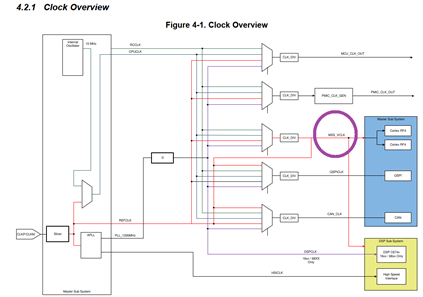Other Parts Discussed in Thread: IWR6843, AWR6843
Hi mmWave Team,
For a current application I need a high frequency PWM signal output.
Here's what I already found (e2e thread more than two years ago): ePWM is not yet supported in mmWave SDK. We will consider supporting this in future Releases
When can I expect a sdk driver for the ePWM peripheral? Is there a workaround until then (e.g. header files for setting manual configuration)?
thanks.
best regards, ruben




